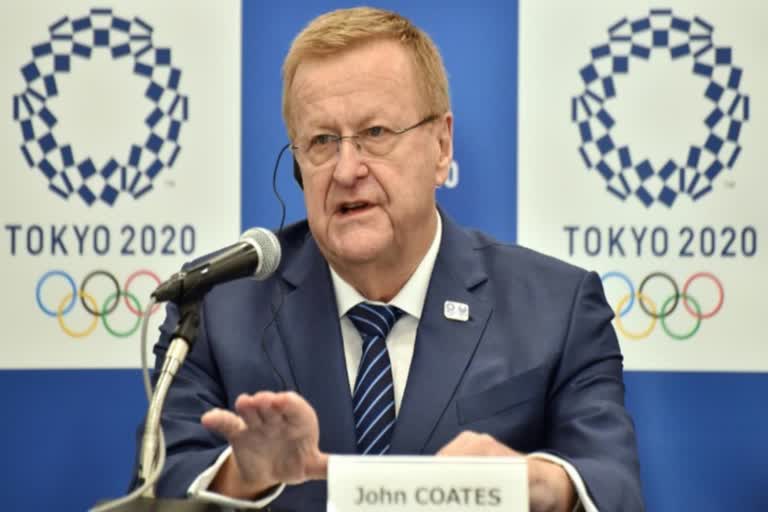Tokyo: If John Coates was trying to stir controversy, he succeeded.
An International Olympic Committee vice president, Coates was asked a few days ago by a Japanese reporter at an online news conference if the Tokyo Olympics would go ahead, even if a state of emergency were in force in Japan.
Coates replied: "Absolutely, yes."
Also Read: Olympian Sushil Kumar arrested by Delhi Police in murder case
Coates said what the IOC and local organizers have been trying to persuade the Japanese public about for months: The postponed Olympics with 11,000 athletes from 200 nations and territories will open on July 23 and will be "safe and secure."
But his defiant tone has stirred a backlash in Japan where 60-80% in polls say they do not want the Olympics to open in two months in the midst of a pandemic.
Just over 12,000 deaths in Japan good by global standards, but poor in Asia have been attributed to COVID-19. But Tokyo and Osaka and several other areas are under a state of emergency until May 31. And it's likely to be extended.
There is fear of new variants spreading with only a tiny percentage of Japanese vaccinated. Estimates range between 2% and 4%.
"Right now, more than 80% of the nation's people want the Olympics postponed or canceled," Japanese billionaire businessman Masayoshi Son said over the weekend.
He is the founder and CEO of SoftBank Group Corp. He also owns the SoftBank Hawks baseball team.
"Who is forcing this to go ahead, and under what rights? Son added.
Technically, the games belong to the International Olympic Committee and only it has the power to cancel. Of course, any move would have to be negotiated with Japanese organizers.
There is no suggestion this will happen.
Also Read: Simone Biles makes history in return to competition at US Classic
Social media criticized Coates, and also went after IOC President Thomas Bach who has said repeatedly that everyone must "sacrifice" to pull off these Olympics, which have already banned fans from abroad. A decision on local fans attending if any will be made next month.
The IOC relies on selling television rights for 75% of its income, and Japan has officially spent $15.4 billion to prepare the games. Government audits suggest the figure is much higher. All but $6.7 billion is public money.



